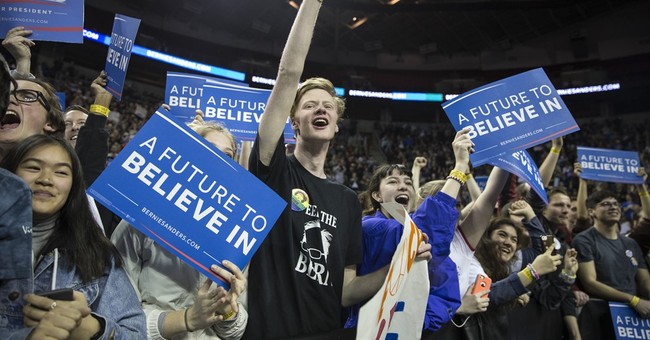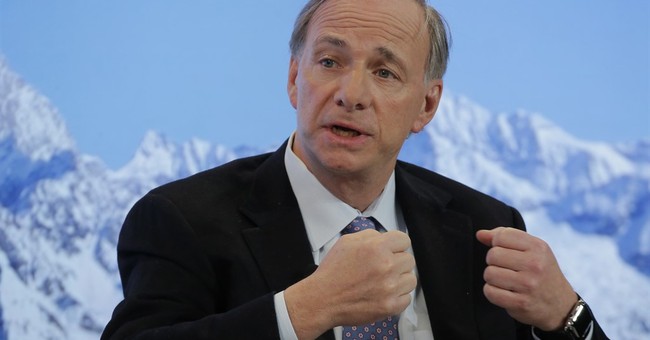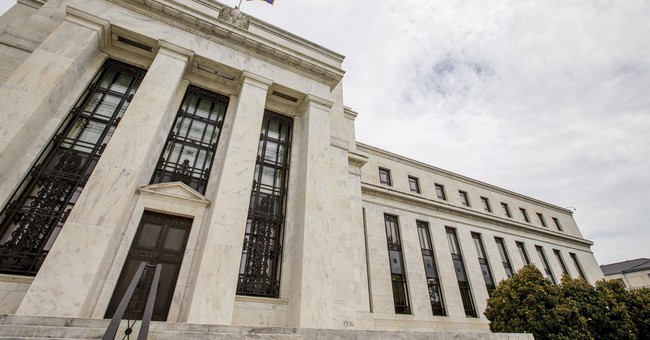
Source: AP Photo/Stephen Brashear
Last week I wrote about how
John Rawls built his definition of justice on envy. This week I want to focus on the economic weaknesses in
A Theory of Justice and Justice as Fairness: A Restatement. Clearly, I don’t have the intellect or stature to challenge someone of Rawls’ reputation. But don’t worry. I don’t try. I have nothing to say that I didn’t get from people with the reputations and status to challenge Rawls, such as Helmut Schoeck, Ludwig von Mises, and Friedrich Hayek.
Rawls’ books are beautiful philosophy. He reasons well and if you accept his assumptions, his conclusions follow naturally. He’s not as good as the people mentioned above at expressing himself, but he’s not too difficult to understand.
Rawls’ ideal society is similar to the one the great German economist Wilhelm Roepke promoted in his book A Humane Economy: The Social Framework of the Free Market. Like Rawls, Roepke wanted to limit large corporations in favor of small to medium sized businesses with more people being self-employed. Roepke thought self-employment offered a healthier lifestyle than working at a corporation, but he didn’t offer a plan to achieve his goal other than to look at taxation. Rawls wanted to redistribute wealth from the successful to the poor in order to provide them with the education and capital to own their businesses with the goal of limiting the influence in politics of wealth.
However, one of the biggest problems in the developing world is that most businesses are small to medium size, for different reasons that what Rawls gives, but we can see the effect. Productivity remains stagnant so standards of living can never improve. The state owns the few large corporations, which suffer all of the problems of state ownership, as China demonstrates daily. State owned corporations lose money and need to be subsidized by tax revenue. Amtrak and the US Post Office offer other examples.
Some corporations need to be large. It would be difficult for a mom-and-pop shop to build airliners, cars, electrical generators, locomotives or many other things. Who decides which ones are large and how large they can be? Rawls would leave it to the state to decide, meaning he thinks bureaucrats will do a better job than the market, which has never been true. Politicians and bureaucrats aren’t angels or smart. They suffer from the same sins as common folk and are easily corrupted, as Nobel laureate James Buchannan demonstrated with Public Choice theory.
Rawls’ theory suffers from a lack of realism much like that of mainstream economics. He assumes that people are perfectly rational instead of acting like real people who are irrational and infected with many evils. Like most socialists, he assumes that people are born innocent and if raised and educated in his artificial society they will remain so. He suffers from Hayek’s Fatal Conceit, the idea that we can ignore human nature, history and tradition and, using pure reason, recreate morality and social organization in our own image, foresee all of the consequences, and perfect humanity.
For example, Rawls wrote, “Under these conditions we hope that an underclass will not exist; or, if there is a small such class, that it is the result of social conditions we do not know how to change, or perhaps cannot even identify or understand. When society faces this impasse, it has at least taken seriously the idea of itself as a fair system of cooperation between its citizens as free and equal.”
We know from history that Rawls’ scheme will result in a large underclass. His plan is not so different from previous attempts at socialism that we can’t project what will happen. Envy and the fear of it will cause political representatives to punish success. That will reduce investment and wealth creation. Everyone will grow poorer. As Piketty wrote in his book, Capital, a tax of 80% on wealth will not bring in significant revenue to redistribute.
But Rawls assures us that we can congratulate each other for having the moral superiority to implement his system, just as poor socialist countries today, especially Europeans, pat each other on the back for their moral superiority to the greedy and wealthier US. All envious people do the same.
Rawls excludes by definition envy and the will to dominate from his political representatives, but in the real world those human passions will erupt in his system. Those with the will to dominate will command most positions in government and use its power to benefit their businesses and those of allies by manipulating the envy, and fear of envy, in others, just as they do today. Of course, they do it all in the name of public health and safety. Rawls seems to be unaware of Public Choice or Baptists and Bootleggers theories that show how corporations grow large by using the power of the state to regulate smaller competitors out of business and create oligopolies. Any time we give the state as much power over the economy as Rawls demands, politicians sell that power to the highest bidders among wealthy businessmen.
Rawls was ignorant of sound monetary theory and Cantillon effects as well, which is a shame because of his fixation on limiting inequality. One of the most powerful generators of inequality is the Federal Reserve, a quasi-governmental organization. The Fed manipulates the economy by creating money out of thin air. It has the legal monopoly to counterfeit money. Creating new money causes price inflation so those who receive the new money first can buy goods and assets before prices rise while those who get the money last, the poor, must pay for goods and assets at higher prices and therefore grow poorer.
This process works on the international level, too, to keep poor nations in poverty.
Of course, the Fed does all of that for the public good, stability and job creation. Few PhD economists, let alone the voting public are aware of the problems it causes. This example alone shows Rawls’ naivete at giving the state so much power over the economy.
Rawls’ conception of fairness comes from what Hayek calls family justice. In a family, good parents produce wealth and distribute it to children equally. Children are quick to complain about unfairness when they think a sibling has received more of what the parents doll out. Healthy families need strict equality, but what happens when we try to scale those values to a nation of strangers? They destroy society because members take advantage of the system, as all socialist nations have proven.
In a Biblical society, the state doesn’t play the role of parent and distribute wealth equally. People get the value of what they labored to produce based on how consumers value the product. The producer must serve his fellow man or he earns little from his labor. One who doesn’t get to keep the value of his labor is a slave. While necessary for society, this type of fairness would destroy families.
In Part IV of Justice as Fairness, Rawls compares his ideal society with capitalism, the welfare state, and communism. The casual reader might not notice the sleight of hand Rawls employs when he compares his imaginary construction with historical ones. Socialists frequently use that tactic and reality always suffers in the comparison to fantasy.
Rawls’ utopia is beautiful philosophy. But he assumes that good people will always hold power so that the government could achieve the maximum good. In the same way that mainstream economics sees market failures littering the landscape and looks to the state to correct them, Rawls portrays a democratic state as having the omniscience, omnipotence, and omnipresence (attributes of God) to solve all problems. Capitalism and the US Constitution aim at opposite goals. They assume that evil people will hold power occasionally and are designed so that evil can do the least damage possible.
The Biblical definition of justice, which excludes envy, has many features to recommend it. For one, it’s based on real people and protects us from those who tend to have the evil impulses that Rawls excludes, such as envy and the lust to dominate others.
At the end of his book, Rawls tries to demonstrate that his scheme is not utopian. He argues that once implemented people would get used to it and it would become the normal way of living and thinking. He merely needed to refer to Schoeck’s book to notice how unrealistic he is. Schoeck shows how societies from the primitive to the modern were organized around envy as evidenced by the desire for equality. Most societies weren’t technically democratic, but tribal societies operated on consensus. The more equality they created, the hotter envy burns.
Boiled down, Rawls’ utopia is hardly different from Fabian socialism, communitarianism, or the welfare state. He goes to greater lengths to establish the moral superiority of his system by redefining terms in his favor. He tells us that it differs from the welfare state only in the motivations for helping the poor – it’s justice as he defines it and not pity.
But it’s not morally superior to the Biblical system of private property with voluntary charity for the poor, the system that made Western civilization great.


